Una campagna di FIRST CHILD PRODUCTIONS
ContattiRecupera la tua password
Inserisci il tuo indirizzo email: ti invieremo una nuova password, che potrai cambiare dopo il primo accesso.
Password inviata
Controlla la tua casella email: ti abbiamo inviato un messaggio con la tua nuova password.
Potrai modificarla una volta effettuato il login.
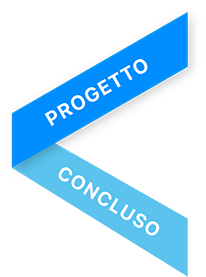

GIUSTO IL TEMPO PER UNA SIGARETTA
- Raccolti € 780,00
- Sostenitori 20
- Scadenza Terminato
- Modalità Raccogli tutto Informazioni
Raccogli tutto
Il tuo contributo servirà a sostenere un progetto ambizioso. Scegli la ricompensa o la somma con cui vuoi sostenerlo e seleziona il metodo di pagamento che preferisci tra quelli disponibili. Ti ricordiamo che il progettista è il responsabile della campagna e dell'adempimento delle promesse fatte ai sostenitori; sarà sua premura informarti circa come verranno gestiti i fondi raccolti, anche se l'obiettivo non sarà stato completamente raggiunto. Le ricompense promesse sono comunque garantite dall’autore.
- Categoria Film & corti
Il Progetto
[Please scroll down for the English and French translation!]
![]() Ciao!Fra qualche giorno cominceranno le riprese del nostro cortometraggio “Giusto il Tempo per una Sigaretta”. Ecco la storia:
Ciao!Fra qualche giorno cominceranno le riprese del nostro cortometraggio “Giusto il Tempo per una Sigaretta”. Ecco la storia:
Christian, un ragazzo di venticinque anni, cerca in tutti i modi di fare andare a scuola suo fratello minore, Giulio; cosa facile, per i più, ma non per loro. Christian, infatti, lavora come muratore in un cantiere, e il suo lavoro comincia alla stessa ora in cui il fratellino deve andare a scuola. La madre dei fratelli é alcolizzata, assente e non é in grado di assumersi alcuna responsabilità, né nei propri riguardi né nei confronti dei propri figli che, pertanto, sono abbandonati a loro stessi. In più, la figura paterna é inesistente. Christian ha la pelle chiara e gli occhi azzurri. Giulio é, invece, mulatto. Giulio chiederà al fratello perché la loro pelle sia di colore così diverso. Christian gli spiegherà che hanno la stessa madre ma il padre diverso. Aggiungerà che il padre di Giulio, probabilmente, assomiglia più a Mohamed, il proprietario del negozio di alimentari dello stesso palazzo dei ragazzi, dal quale si recano puntualmente per prendere l’alcool per la madre oppure le caramelle preferite di Giulio. Nella complessità del quotidiano, il punto di riferimento di Giulio, diventa Mohamed, che riuscirà a dare a Giulio e anche a Christian un riferimento quasi paterno, dettato dalla generosità e dalla comprensione dei bisogni dei due fratelli, alla ricerca di una identità. Christian e Giulio sono due eroi comuni al giorno d'oggi: gli eroi della sopravvivenza.
Il cortometraggio é prodotto dalla casa di produzione cinematografica First Child Productions, ha ottenuto un contributo di 11.000 euro in relazione al bando regionale per il Sostegno alla Produzione di Opere Cinematografiche, destinato ad Imprese con sede in Emilia Romagna, ed é stato sostenuto da vari sponsor.
La sceneggiatura e la regia sono della ravennate Valentina Casadei, che si è formata a Parigi, dove vive da molti anni. I suoi due precedenti cortometraggi, “Tutto su Emilia” e “I Nostri Giorni Benedetti”, hanno ricevuto 242 selezioni a Festival di tutto il mondo, e ricevuto in totale 52 premi.
La produttrice, Paola Piccioli, dal canto suo, con First Child vanta già la realizzazione di vari film brevi, tra cui "Idda" e "Don Gino", del film "Il Talento", tutti in giro per il mondo nei festival più importanti, mentre è in corso la realizzazione del documentario internazionale, ”Before They Act”, che affronta il tema della prevenzione all'abuso sessuale di minori.
Il cortometraggio verrà girato con talenti quasi interamente del territorio e con la partecipazione di Matteo Olivetti, protagonista del lungometraggio “La Terra dell’Abbastanza”, dalla regia dei fratelli D’Innocenzo.
Con una cultura che abbraccia il mondo, produttrice e regista stanno per dare il via alle riprese del cortometraggio, i cui temi sono la fraternità, la sopravvivenza alla quotidianità, la ricerca di una identità, il maltrattamento dei bambini e l'adolescenza.
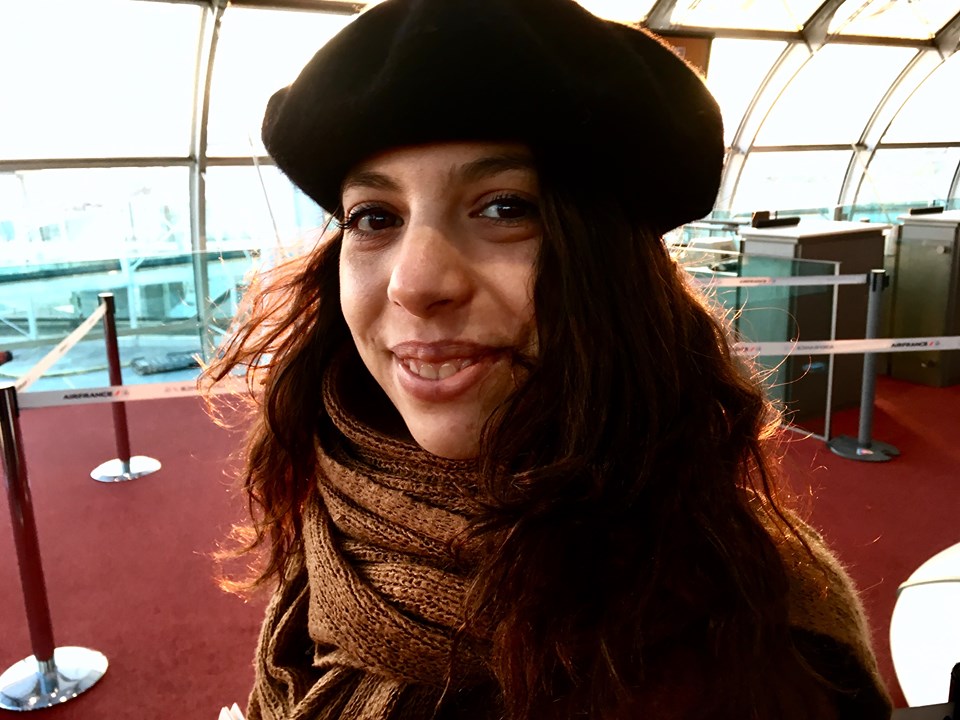 La parola alla regista
La parola alla regista
Ho pensato molto al perché ho voluto raccontare questa storia e mi sono resa conto che, in questo particolare momento storico, essa rappresenta, sotto diverse angolature, la volontà di smontare una certa narrazione basata sulla paura del diverso, sulla difesa delle cose possedute ad ogni costo, sul mettere gli ultimi contro i penultimi, sulla casa intesa come sacrario inviolabile da difendere con le unghie e coi denti da chissà quali aggressioni esterne ed, infine, dall’obiettivo di creare nemici “etnici” e “sociali” grazie allo strumento dell’incultura e dell’avversità per ogni razza diversa dalla propria. La storia, pertanto, cerca di affrontare alcune di tali tematiche cercando di rompere i clichè imposti da tale narrazione massmediatica. Prima fra tutte, quella della casa, intesa come una “panic room” salvifica da tutte le insidie esterne. La casa, nel film, rappresenta l’esatto contrario, essendo il luogo nel quale si producono i motivi di disagio sociale nei quali versano i due fratelli; la casa dalla quale fuggire nel tentativo di trovare fuori da essa gli strumenti di affracamento da un’esistenza diversamente segnata. La strada, di contro, che, grazie alla necessità dei protagonisti di far fronte diversamente all’inesistenza di un nucleo familiare in grado di sostenere i figli negli essenziali bisogni quotidiani di natura logistica, si scopre in grado di supplire a tale deficit. L’aiuto, inoltre, viene da un personaggio che la narrazione sociale “mainstream” vorrebbe rappresentare l’insidia tipica, costituita dalla differenza etnica di Mohamed; personaggio che tale narrazione dovrebbe designare come il “diverso” da cui proteggersi e nei confronti del quale mantenere un atteggiamento di distacco ostile. Il supporto logistico richiesto, che viene donato in maniera del tutto disinteressata e che, seppur impalpabilmente, genera quella rete affettiva che solo l’umana comprensione è in grado di alimentare spontaneamente, solo laddove venga meno la diffidenza propria di una struttura sociale impaurita dall’essere divenuta “meticcia” e multiculturale così rapidamente. Tutto ciò, in un contesto di degrado del sistema di welfare, che abbandona i più deboli sempre di più al loro destino.
A che punto siamo?
Il progetto ha vinto il Bando per la produzione della Film Commission dell’Emilia-Romagna e verrà girato nella provincia di Bologna. Le riprese avverranno fra in Dicembre 2019, e la post-produzione verrà ultimata fra Gennaio e Febbraio 2020.
Abbiamo già ottenuto una parte del budget, ma il crowdfunding ci è essenziale per iniziare le riprese, soprattutto perché i fondi erogati dallo Stato e dalla Regione vengono consegnati solo diverso tempo dopo la conclusione della post-produzione. Ecco perché ogni contributo, piccolo o grande che sia, è prezioso per la creazione del film.
Come spenderemo i soldi del crowdfunding?
I fondi raccolti con il crowdfunding serviranno a:
- Noleggiare l’attrezzatura per le riprese e l’illluminazione del set (camera, lenti, luci, ecc.)
- Realizzare montaggio e correzione del colore
- Comporre la colonna sonora
- Effettuare mix audio
Nel progetto lavoreranno eccellenti professionisti del settore, e il nostro obiettivo è sia pagare adeguatamente tutte le persone che collaboreranno al film, sia fornire loro i mezzi tecnici necessari per fare un lavoro di alta qualità. Contribuire a questo crowdfunding equivale a trasformarsi in un membro del team, diventando a tutti gli effetti uno degli elementi della squadra che hanno reso possibile la creazione del film!
I nostri attori protagonisti:
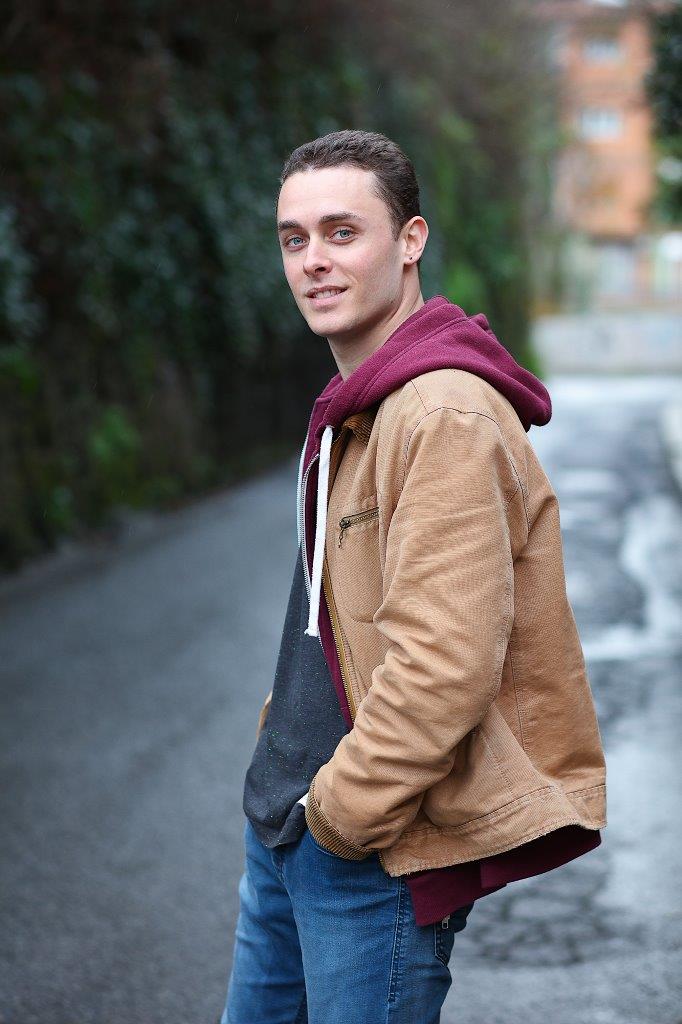 Matteo Olivetti - Christian
Matteo Olivetti - Christian
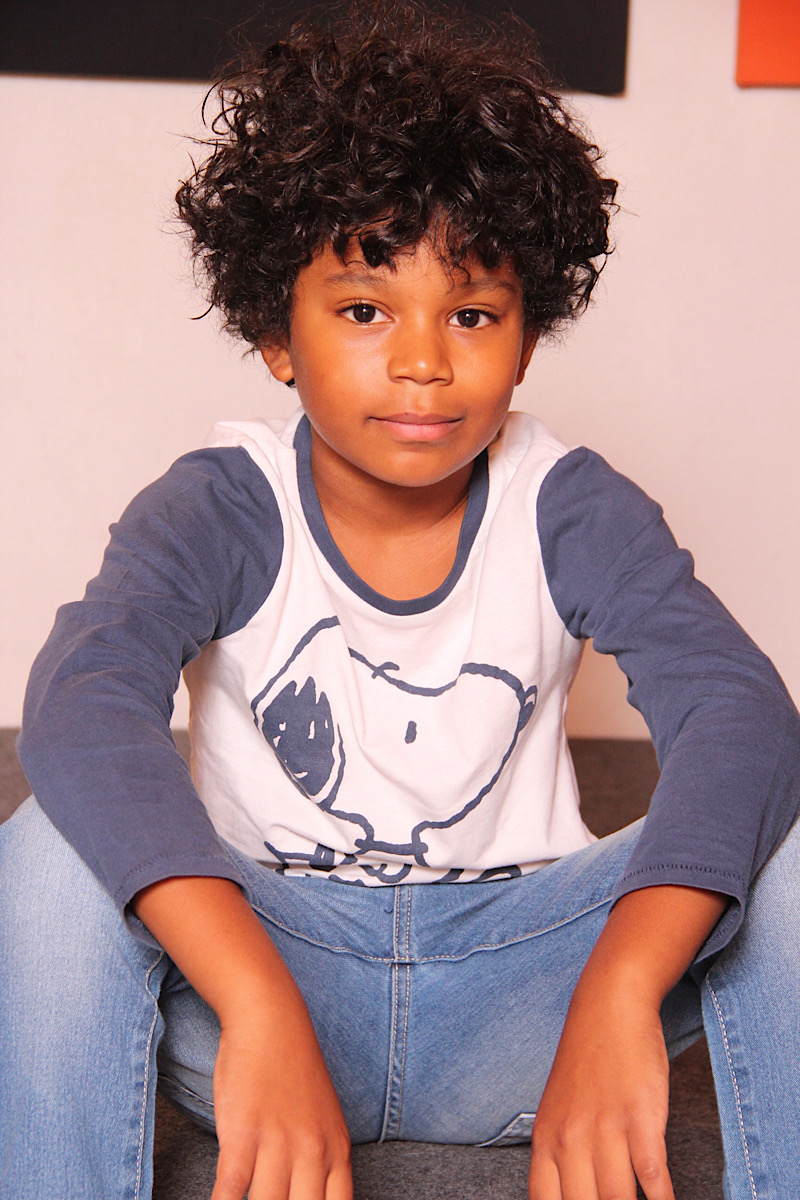 Malik Gueye - Giulio
Malik Gueye - Giulio
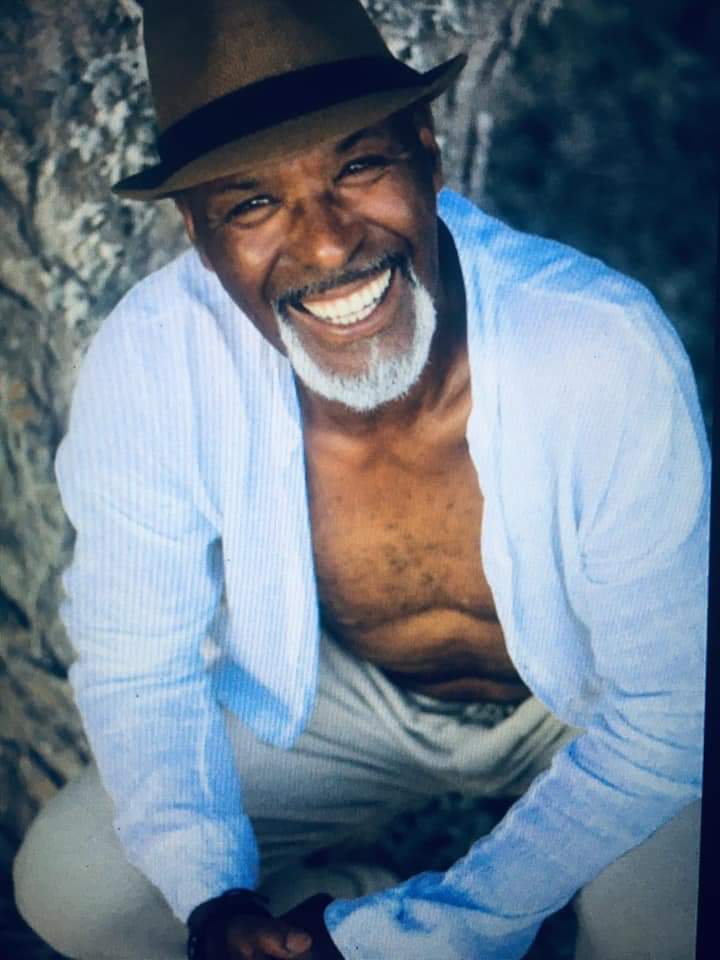 Aziz Es-Sahnouny - Mohamed
Aziz Es-Sahnouny - Mohamed
La troupe:
Valentina Casadei – Sceneggiatrice e regista
Paola Piccioli - Produttore
Gianluca Zonta – Aiuto regista
Raffaele Simone – Assistente alla regia
Mattia Mancini – Segretario di edizione
Barbara Di Micco – Assistente di produzione
Silvia Lorenzetti – Location scout
Luca Nervegna – Direttore della fotografia
Luce Bertani – Assistente operatore
Fabio Cimatti – Aiuto operatore
Michele Traina - Elettricista
Parvis Jashnt - Macchinista
Adrian George - Video assist
Giampietro Huber – Scenografo
Michele Casale – Assistente scenografo
Claudia Calzoni – Truccatrice
Beatrice Zannini – Costumista
Matilde Riquelme – Assistente costumista
Alessandro Nazzari – Fotografo di scena
Christian est un jeune de vingt-cinq ans qui tente par tous les moyens de faire conduire son frère cadet, Giulio, à l’école. Ce qui semble facile pour la plupart ne l’est pas pour eux. Car Christian travaille comme maçon dans un chantier en construction et son travail commence aux mêmes heures que l’école du petit. Leur mère, alcoolique et absente, n’arrive à assumer aucune responsabilité, ni pour elle-même, ni pour ses enfants, laissés à eux-mêmes. Aucune figure paternelle n’est présente et Christian tente de son mieux d’assumer cette responsabilité. Christian a la peau claire et les yeux bleus. Giulio est métis. Ce dernier va demander à son grand frère pourquoi leur peau est si différente. Deux pères, lui répond Christian. Et le tien doit plus ressembler à Mohamed. Mohamed est le propriétaire de l'épicerie située en bas de leur immeuble chez qui ils vont régulièrement pour lui acheter de l'alcool pour leur mère ou des bonbons pour Giulio. Dans la complexité de leur vie quotidienne, Mohamed deviendra le point de référence de Giulio. Il réussira malgré lui à leur donner une référence presque paternelle, dictée par sa générosité et sa compréhension des besoins des deux frères, en quête d'identité. Christian et Giulio sont deux héros communs d’aujourd'hui: les héros de la survie.
Le court métrage est produit par la société First Child Productions. Il a obtenu une aide régionale de 11.000 euros de la part du fond cinéma de l’Émilie-Romagne en Italie, et a reçu le soutien de nombreux sponsors.
“Juste le Temps d’une Cigarette” est écrit et réalisé par Valentina Casadei, originaire de Ravenne et formée à Paris, où elle a vécu pendant de nombreuses années. Ses deux précédents courts métrages, “ À Propos d’Émilie” et “Nos Jours Bénis", ont reçu 242 sélections dans des festivals du monde entier et ont reçu un total de 52 prix.
La productrice, Paola Piccioli a pour sa part produit avec sa société First Child plusieurs courts métrages, dont "Idda" et "Don Gino" ainsi que le long-métrage “Le Talent”, qui ont participé à de nombreux festivals internationaux. Elle est en cours de production du documentaire international "Before They Act”, qui traite de la question de la prévention des abus sexuels sur mineurs.
Le court métrage sera tourné avec des talents presque entièrement régionaux et avec l’aimable participation de Matteo Olivetti, protagoniste du long métrage “Frères de Sang", réalisé par les frères D’Innocenzo.
Dotés d’une culture embrassant le monde, la productrice, la réalisatrice et toute l’équipe du film sont sur le point de commencer le tournage de ce court métrage ayant pour thèmes la fraternité, la survie qu’est la vie quotidienne, la recherche d’une identité, la maltraitance des enfants et l’adolescence.
 A la réalisatrice
A la réalisatrice
J'ai beaucoup réfléchi sur les raisons pour lesquelles je voulais raconter cette histoire et je me suis rendue compte que, dans ce moment historique particulier, cela représentait, sous différents angles, la volonté de déconstruire un certain récit basé sur la peur de la différence, sur la défense des biens possédés à tout prix, sur la maison entendue comme un sanctuaire inviolable à défendre coûte que coûte d'une sorte d'agression externe et, pour conclure, de créer des ennemis "ethniques" et "sociaux" grâce à l'instrument de l’inculturation et de l’aversion pour toute race autre que la sienne. L’histoire du court métrage tente, donc, de remédier à certains de ces problèmes en essayant de briser les clichés imposés par ce discours médiatique. Tout d’abord, celle de la maison, entendue comme une “panic room”, protégeant de tous les dangers extérieurs. La maison, dans le film, représente exactement le contraire, étant le lieu où se produisent les raisons du malaise social dans lequel vivent les deux frères; la maison d'où s'échapper pour tenter de découvrir les instruments d’affranchissement d'une existence marquée par la différence. La rue, en revanche, qui, grâce à la nécessité pour les protagonistes de faire face différemment à l’absence d’une cellule familiale capable de subvenir aux besoins essentiels des enfants au quotidien, s'avère en mesure de combler ce déficit. L'aide provient également d'un personnage, Mohamed, dont la diffèrence ethnique constitue d’ordinaire dans le discours dominant un obstacle typique. Le support logistique demandé, qui est donné de manière totalement désintéressée et qui, impalpablement, génère ce réseau affectif que seule la compréhension humaine est capable de nourrir spontanément, seulement lorsque disparaît la méfiance à l’égard d’une structure sociale qui craint le "métissage" et le multiculturalisme. Tout cela, dans un contexte de dégradation du système du “welfare”, qui abandonne de plus en plus les plus faibles à leur destin.
Où en sommes nous?
Le projet a gagné l'appel à production de la Commission du film d’Émilie-Romagne et sera tourné dans la province de Bologne, en Italie. Le tournage aura lieu en décembre 2019 et la postproduction sera terminée entre janvier et février 2020. Nous avons déjà obtenu une partie du budget, mais le crowdfunding est essentiel pour que nous puissions commencer à tourner, d'autant plus que les fonds décaissés par l'État et la région ne sont livrés que quelque temps après la fin de la post-production. C'est pourquoi chaque contribution, petite ou grande, est précieuse pour la création du film.
Comment allons-nous dépenser l'argent du crowdfunding?
Les fonds de crowdfunding seront utilisés pour:
- Louer le matériel pour filmer et éclairer le plateau (caméra, objectifs, lumières, etc.)
- Pour réaliser le montage et l'étalonnage
- Composer la bande sonore du film
- Effectuer le mix son
Notre objectif est de rémunérer correctement toutes les personnes qui collaboreront au film et de leur fournir les moyens techniques nécessaires pour effectuer un travail de haute qualité. Contribuer à ce financement participatif équivaut à devenir membre de l’équipe, devenant ainsi l’un des éléments qui a rendu possible la création du film!
Nos acteurs protagonistes
 Matteo Olivetti - Christian
Matteo Olivetti - Christian
 Malik Gueye - Giulio
Malik Gueye - Giulio
 Aziz Es-Sahnouny - Mohamed
Aziz Es-Sahnouny - Mohamed
Voici l’équipe du film:
Valentina Casadei - Scénariste et réalisatrice
Paola Piccioli - Productrice
Gianluca Zonta - 1er assistant réalisateur
Raffaele Simone - 2ème assistant réalisateur
Mattia Mancini - Scripte
Barbara Di Micco - Assistante de production
Silvia Lorenzetti - Régisseuse générale
Luca Nervegna - Directeur de la photographie
Luce Bertani - 1ère assistante caméra
Fabio Cimatti - 2ème assistant caméra
Michele Traina - Electricien
Parvis Jashnt - Machiniste
Adrian George - Video assis
Giampietro Huber - Chef décorateur
Michele Casale - Assistant décorateur
Claudia Calzoni - Maquilleuse
Beatrice Zannini - Chef costumière
Matilde Riquelme - Assistante costumière
Alessandro Nazzari - Photographe de plateau
![]() Hi! In a few days we will be starting principal photography for our short film, “Giusto il tempo per una sigaretta”. Here’s the story:
Hi! In a few days we will be starting principal photography for our short film, “Giusto il tempo per una sigaretta”. Here’s the story:
Christian, a 25-year-old man, tries to take to school his little brother, Giulio. This is no easy task, since Christian works as a bricklayer in a construction site, and he needs to be at work by the time Giulio starts school. The mother is an alcoholic, and she is uncapable of taking any responsibility for herself or her children, who are literally on their own. Moreover, there’s no father around. Christian is fair-skinned and has blue eyes. Giulio is biracial. Giulio will ask his brother why their skin color looks so different. Christian will explain to him that they share a mother, but have two different fathers; he will add that Giulio’s dad probably looks more like Mohamed, the owner of the deli in their building, where the brothers often go buying alcohol at their mother’s request, or to get Giulio’s favorite candies. Within the complexity of the brothers’ life, Mohamed will become a father figure and source of relief for them, thanks to his generosity and to his understanding of their needs and their research for an identity. Christian and Giulio are two common heroes of our time: the ones who conquer survival.
The short film is produced by First Child productions, won a 11.000 grant from the Emilia-Romagna Film Commission, and has been supported by several sponsors.
Valentina Casadei is the writer and director. She studied filmmaking in Paris, where she currently lives. Her previous short films, “Tutto su Emilia” and “I Nostri Giorni Benedetti”, was selected at 242 Festival worldwide, and won a total of 52 awards.
Paola Piccioli, the producer, produced several shorts, such as Idda and Don Gino, and the feature film Il talent, currently released in the festival circuit, while she is currently working at the feature documentary Before they act, focusing on child sexual buse prevention.
The film will be shot almost entirely with talent from the area, and will feature Matteo Olivetti as leading actor (La terra dell’abbastanza, by the D’Innocenzo brothers).
The themes of the short are brotherhood, survival, the research for an identity, child abuse and adolescence.
 A few words from the director
A few words from the director
I asked myself why I wanted to tell this story and I realized that, in this historical moment, it springs from the need to deconstruct a certain narrative based on the fear of what is ‘different’, on putting the ones that are at disadvantage against each other, on the image of the house as a sacred space to defend against potential threats coming from the outside, on the goal of creating enemies based on ethnicity and social background, and on building an adversarial state of mind against any and every race that is not our own.
Therefore, the story tries to explore some of these themes by breaking clichés, starting with the one that depicts the house as some sort of ‘panic room’, which saves from all the dangers of the outside world. In the film, the house symbolizes the opposite, being the place where all the social issues of the brothers are born. It is the house they need to escape from in order to find the tools to save themselves from a doomed existence. On the contrary, the street is the place where the characters find a fulfillment of their needs when they have to face the absence of their family regarding basic and logistic support. The help comes from a character who in the mainstream narration usually represent a threat, because of his ethnicity. Mohamed offers his help while having nothing to gain, starting that kind of human relationship based on affection that only springs from empathy, and that is possible only when diffidence breaks down, especially in a society heavy with fear of being ‘contaminated’ by other cultures.
All of this happens in a context where the welfare system leaves to their own devices those who have less privilege.
Where are we at?
The project won the Grant for Production of the Emilia-Romagna Regional Fund, and will be shot in the Bologna area. We will be shooting in December 2019, whereas the post-production will take place between January and February 2020.
We already secured part of the budget, but the crowdfunding is vital in helping us starting prodution, due to the fact that the Regional and Government funds are only delivered after the film is finished. That is why every contribution, big or small, is fundamental to the creation of the film.
How will we spend the crowdfunding money?
The funds coming from the crowdfunding will help us with:
- Renting the camera and light equipment
- Editing and color correction
- Creating the soundtrack
- Sound mix
Great industry professionals will be working on the project, and our goal is both to adequately pay our crew and cast, and to give them the technical tools and equipment needed to do a high-quality work. To contribute to this crowdfunding equals to be a member of our team, becoming by all means one of the members of the team that made the creation of this film possible!
Our leading actors:
 Matteo Olivetti - Christian
Matteo Olivetti - Christian
 Malik Gueye - Giulio
Malik Gueye - Giulio
 Aziz Es-Sahnouny - Mohamed
Aziz Es-Sahnouny - Mohamed
Our crew:
Valentina Casadei – Screenwriter and director
Paola Piccioli - Producer
Gianluca Zonta – 1st AD
Raffaele Simone – 2nd AD
Mattia Mancini – Script supervisor
Barbara Di Micco – Line producer
Silvia Lorenzetti – Location scout
Luca Nervegna - DOP
Luce Bertani – 1st AC
Fabio Cimatti – 2nd AC
Michele Traina - Gaffer
Parvis Jashnt - Grip
Adrian George - Video assist
Giampietro Huber – Production designer
Michele Casale – Set dresser
Claudia Calzoni – Make-up artist
Beatrice Zannini – Costume designer
Matilde Riquelme – Assistant costume designer
Alessandro Nazzari – Set photographer
Gallery
Community
Questo progetto ha segnalato obiettivi di sviluppo sostenibile
Gli obiettivi di sviluppo sostenibile (SDGs) costituiscono una serie di 17 obiettivi concordati dall'Organizzazione delle Nazioni Unite.
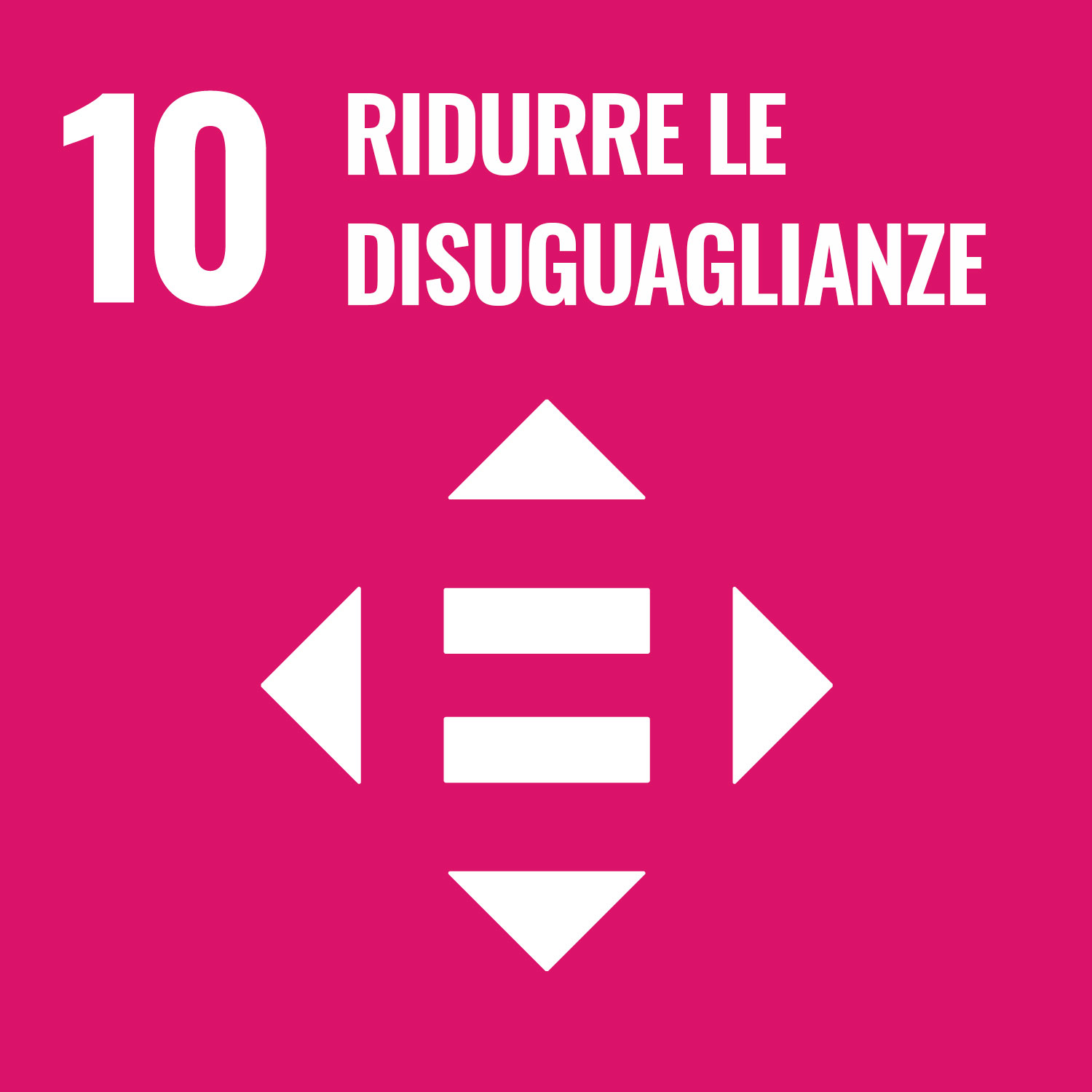
10. Ridurre le disuguaglianze
Ridurre le diseguaglianze: ridurre le disuguaglianze all'interno e tra i paesi;
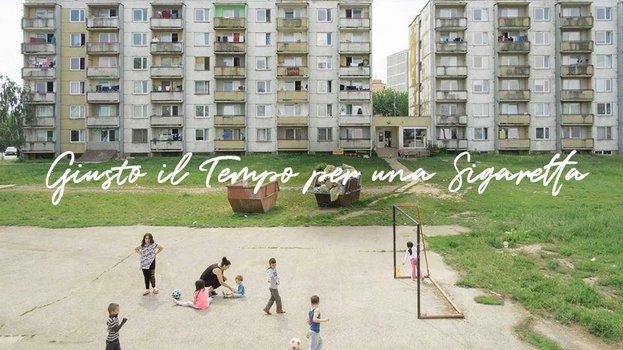
Commenti (4)